In this special 100th episode of The Abstract, host Tyler Finn takes the guest seat to reflect on the career pivots, risks, and community-building lessons that shaped his journey from public policy to leading one of the most engaged legal communities at SpotDraft. Interviewed by Nakta Alaghebandan, Tyler shares candid insights on leadership, trust, storytelling, and why increasing your "surface area" might be the most underrated career move.
Key Insights
1. Trust Is a Two-Way Street
When Tyler joined his first privacy role, he inherited a skeptical team. “The person before me had alienated stakeholders,” he recalls. To rebuild trust, he focused on empathy, context, and understanding incentives. “You can’t just say no — you have to know why people care about what they’re building.” His “yes, and” approach helped turn skeptics into advocates.
2. Take Calculated Risks — Not Blind Leaps
Tyler left public policy for a then-unproven privacy role, just as GDPR was taking off. Friends warned him it’d be “boring compliance work.” He saw it differently — a growth wave about to crest. “If Europe is doing this big thing, others will follow,” he thought. That bet launched his career in tech. His takeaway: risk is often just lack of perfect information. “Talk to mentors, gather better data, and recalibrate — most risks shrink when seen clearly.”
3. Good Work Multiplies Trust (and Responsibility)
At TechGC, Tyler went from being “an uninvited 22-year-old at a GC dinner” to helping run the organization. He earned trust by volunteering for unglamorous tasks — moderating listservs, hosting webinars, and coordinating events during COVID. “Do good work, and people will give you more,” he says. That visibility became his gateway to legal community leadership.
4. Community = Long-Term Marketing Built on Trust
At SpotDraft, Tyler reframed community as the antidote to transactional marketing. “Community isn’t about logos or roll-ups at dinners — it’s about giving people a safe space to learn, share, and grow.” He believes community should sometimes counterbalance marketing: “You need someone in the business thinking through the lens of trust, not just ARR.”
5. The Best CEOs Build Internal Communities
After working with six CEOs, Tyler’s biggest lesson is that culture starts with communication. “If an executive team doesn’t talk to each other, the rest of the company can’t function,” he says. Silence creates a vacuum filled by assumptions. His leadership advice: be high-context, over-communicate, and disagree, then commit.
6. Grace Over Grind
Asked what he’d tell his younger self, Tyler said: “I wish I’d spent less time chasing momentum and more time living with grace — for myself and others.” He’s learned that ambition matters, but kindness compounds. “Life’s harder than you expect at 22. Approach it with curiosity and grace.”
7. Closing Insight:
“Community is trust at scale. It’s how reputation becomes resilience.”
For Tyler, great marketing is just great storytelling — and the best storytellers lead with empathy, curiosity, and consistency.
In this podcast, we cover
00:00 Introduction
03:15 Tyler’s early pivot from public policy to legal tech
05:40 Choosing privacy despite warnings against it
08:33 Building trust after entering a low-trust role
12:04 Becoming the go-to for high-anxiety customer
15:52 Why cross-functional thinking matters in legal leadership
19:03 Sitting in the grey: layoffs, uncertainty, and consulting
22:51 Taking calculated risks and trusting your gut
25:20 From outsider to community leader at TechGC
29:28 What real community building looks like
30:55 How to design a community where people actually open up
31:25 Building trust and reputation intentionally
36:26 How SpotDraft went from a consulting client to employer
40:18 Community as a future-facing marketing strategy
43:22 How Tyler now evaluates executive teams and companies
46:33 Why the CEO and executive team matter more than you think
47:42 What great executive teams do to support internal community
50:12 Why Tyler launched The Abstract and his goals for it
56:04 Personal lessons from 100 episodes
1:01:56 “Increasing your surface area” and embracing uncertainty
1:05:12 Rapid fire

.svg)








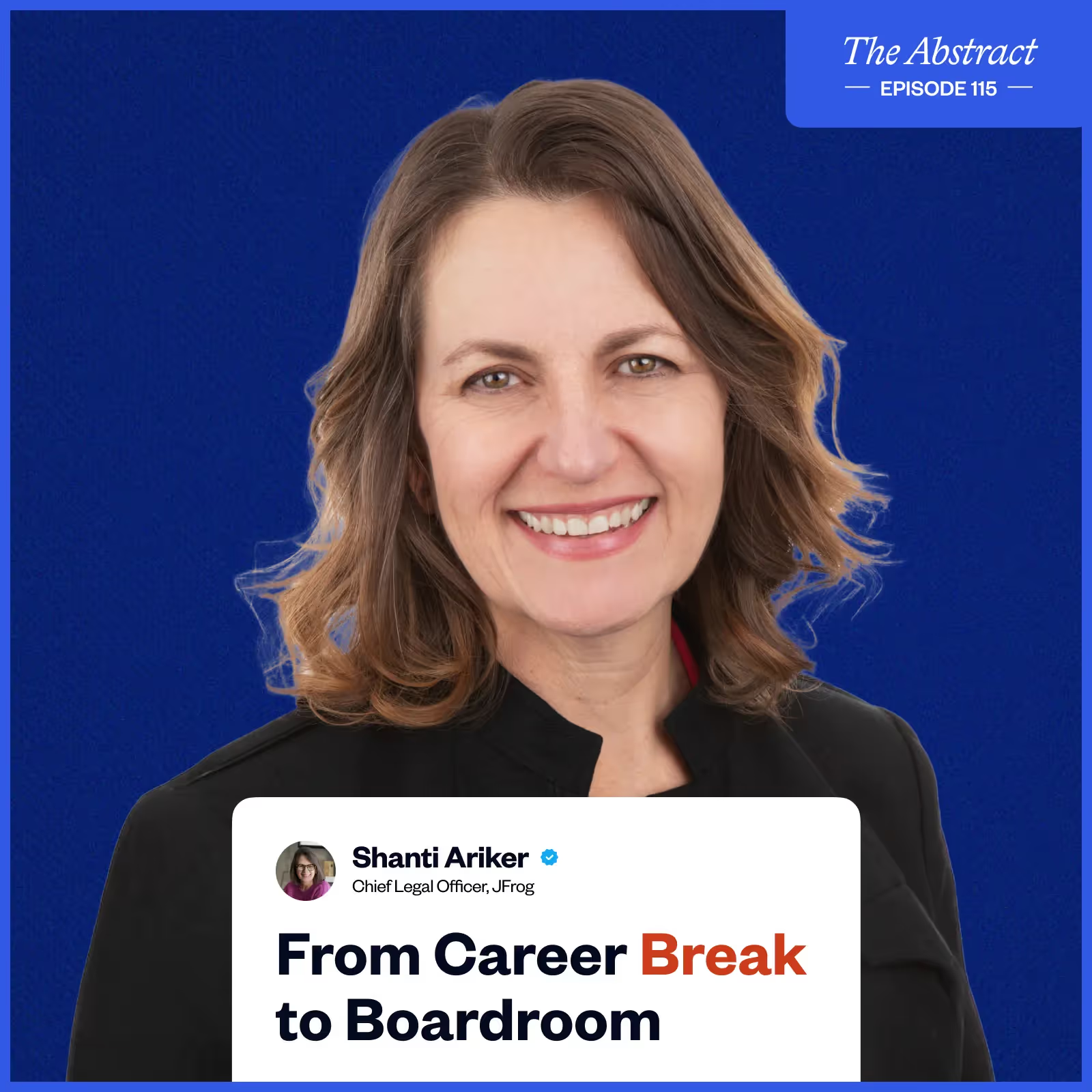
.svg)
.svg)


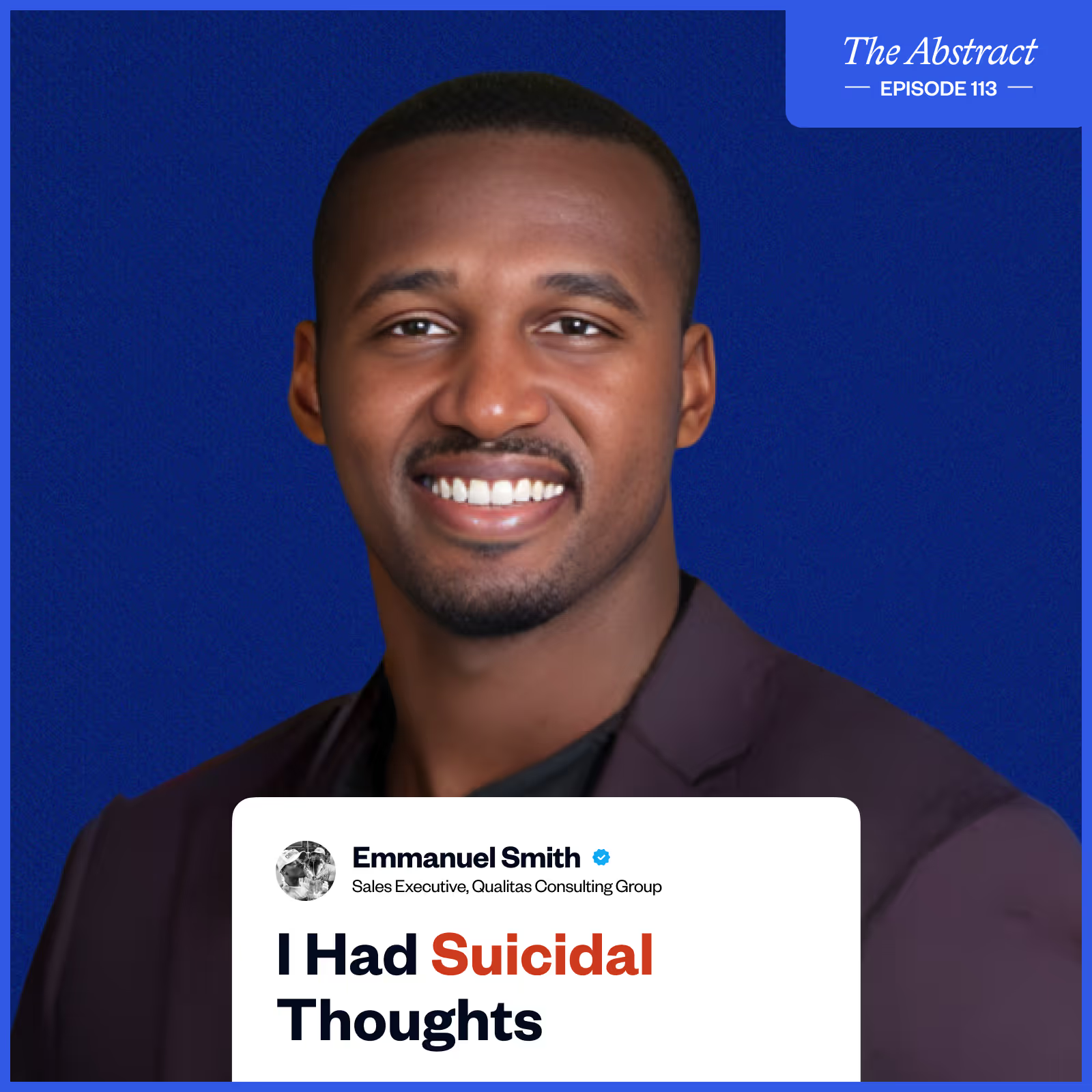

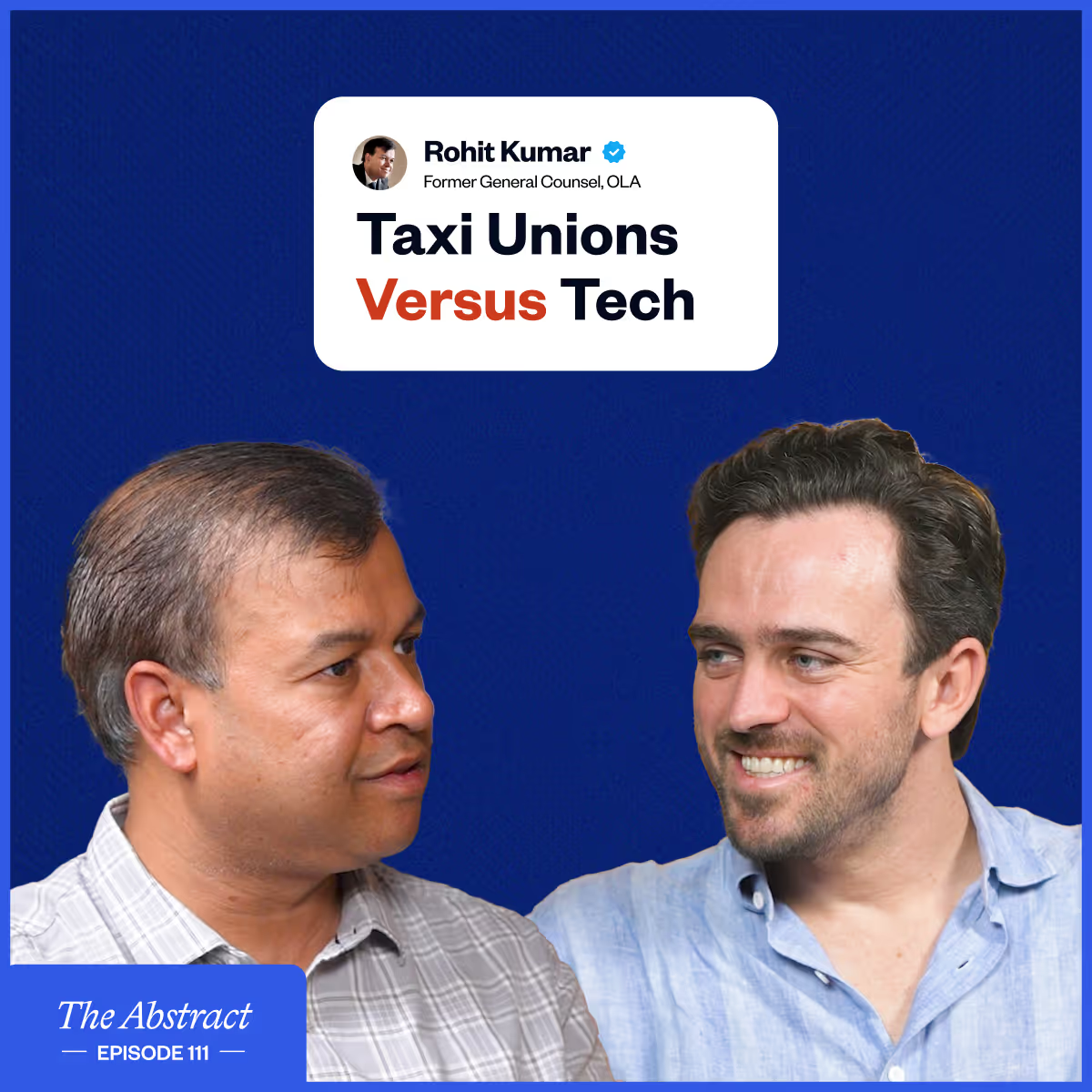
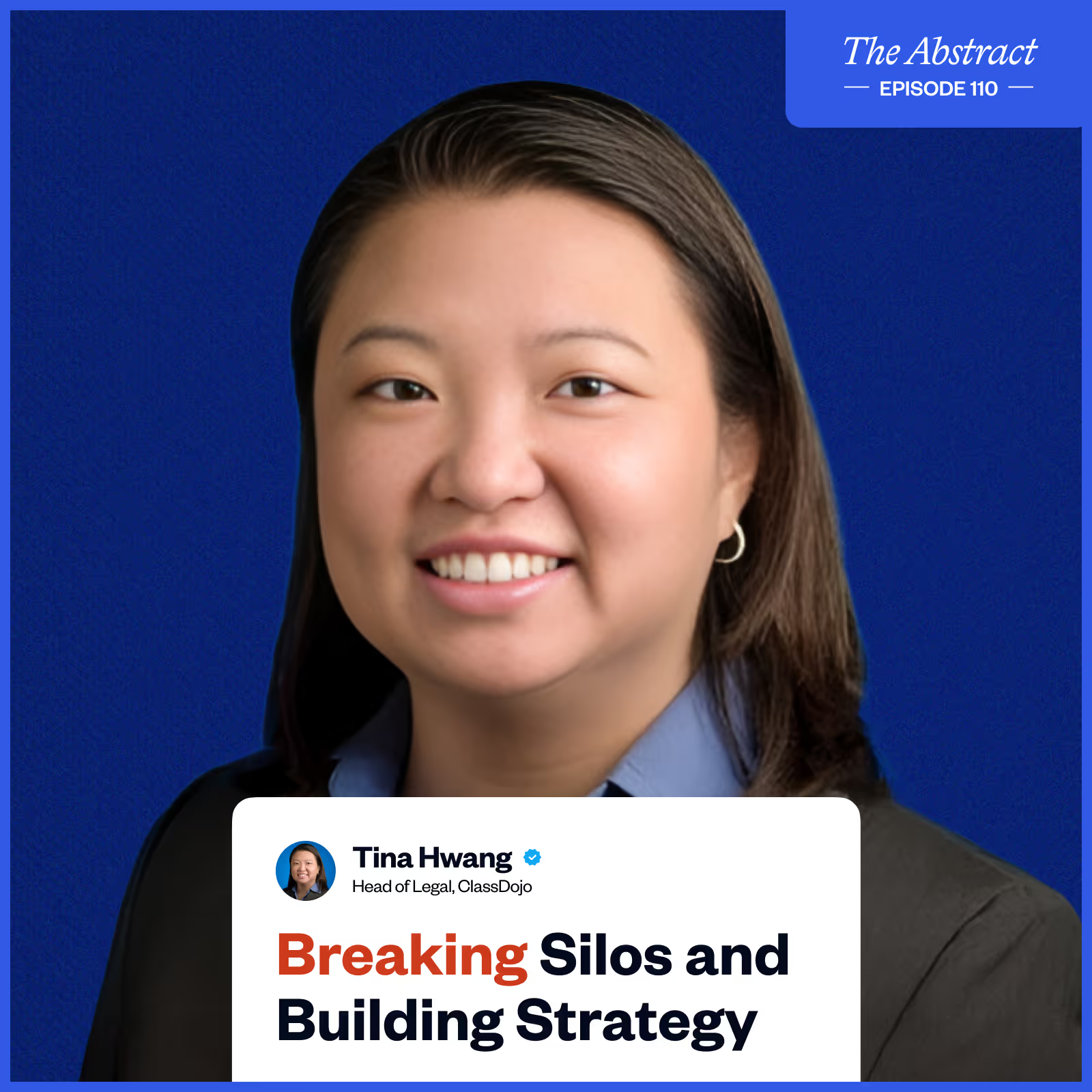
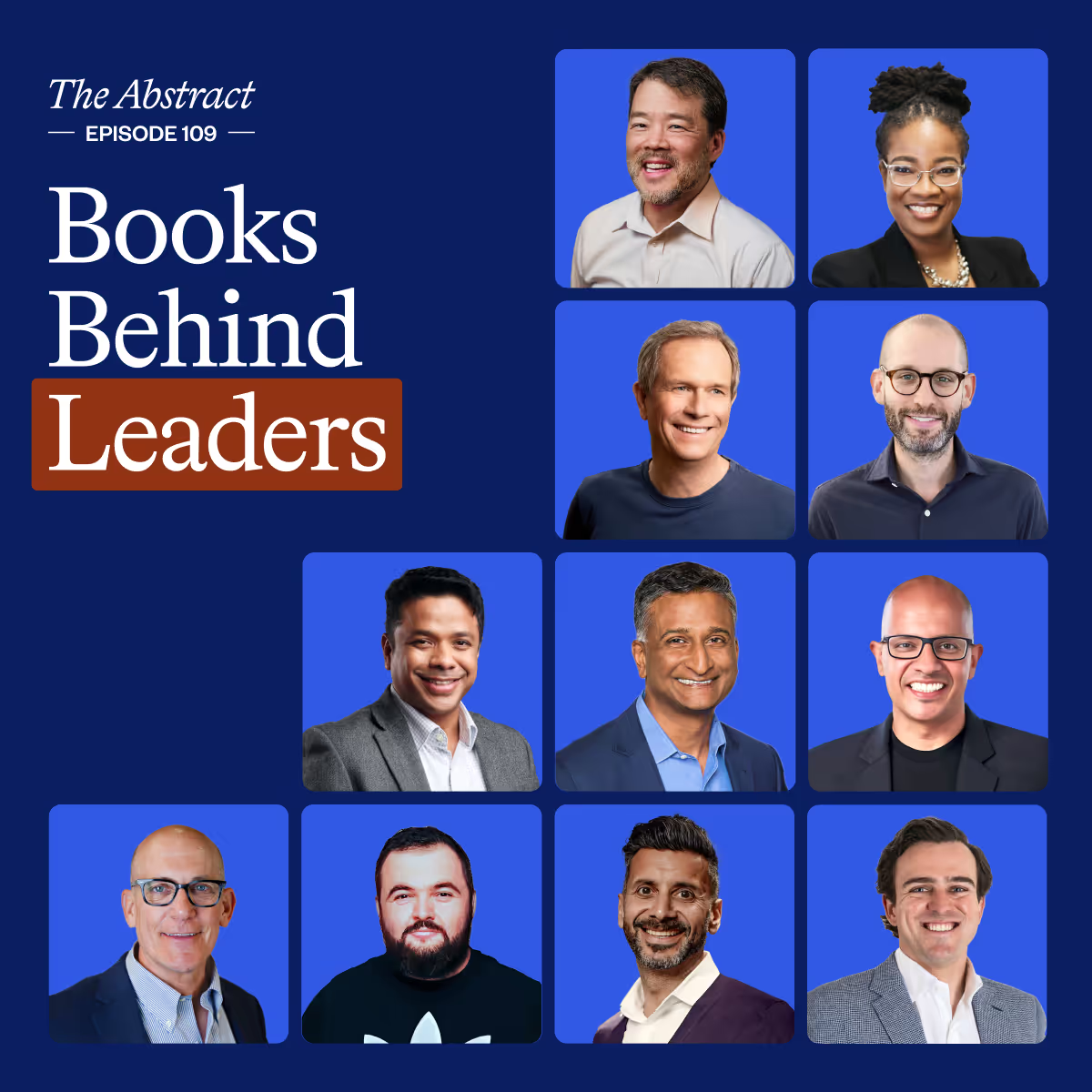

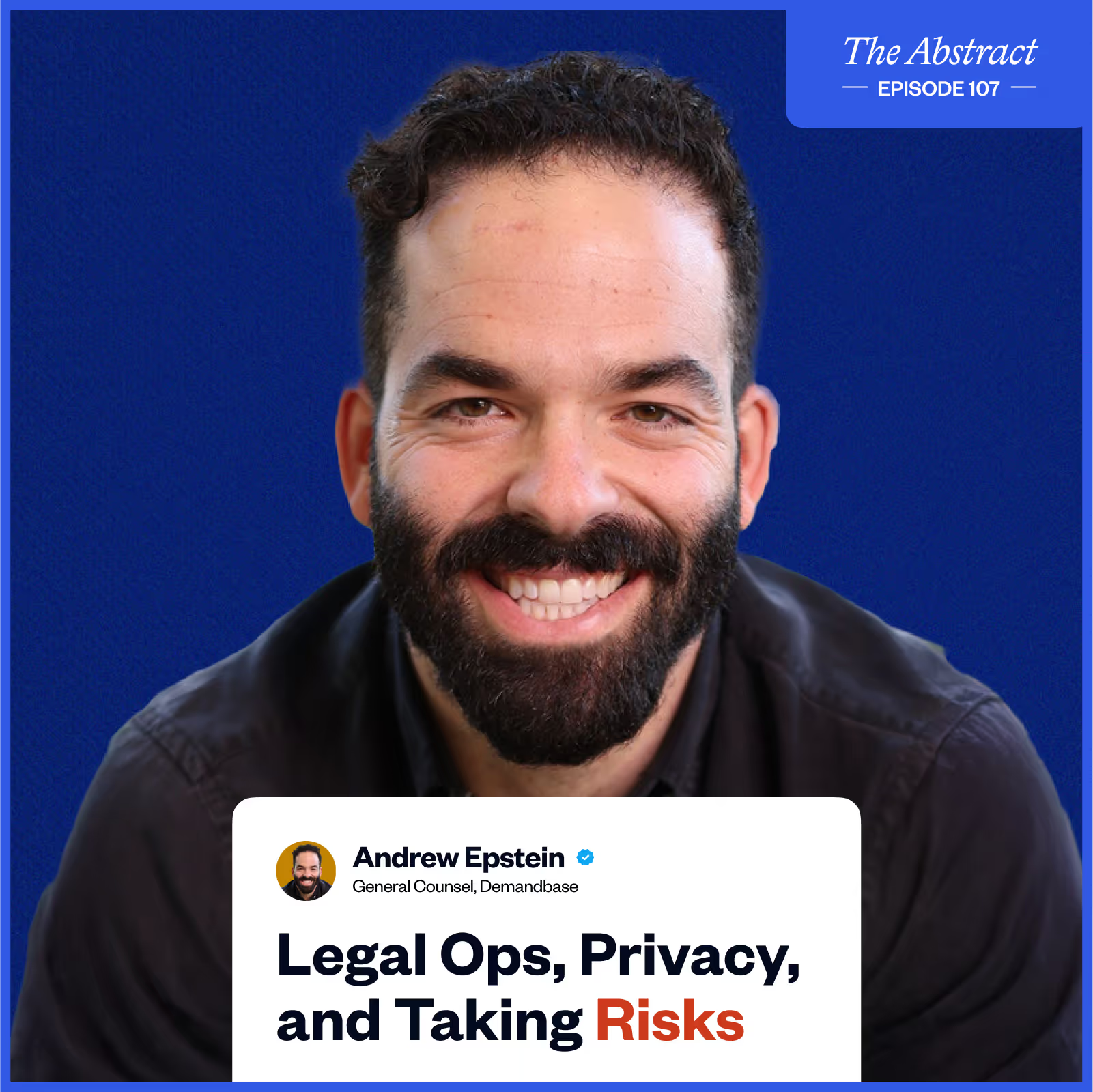


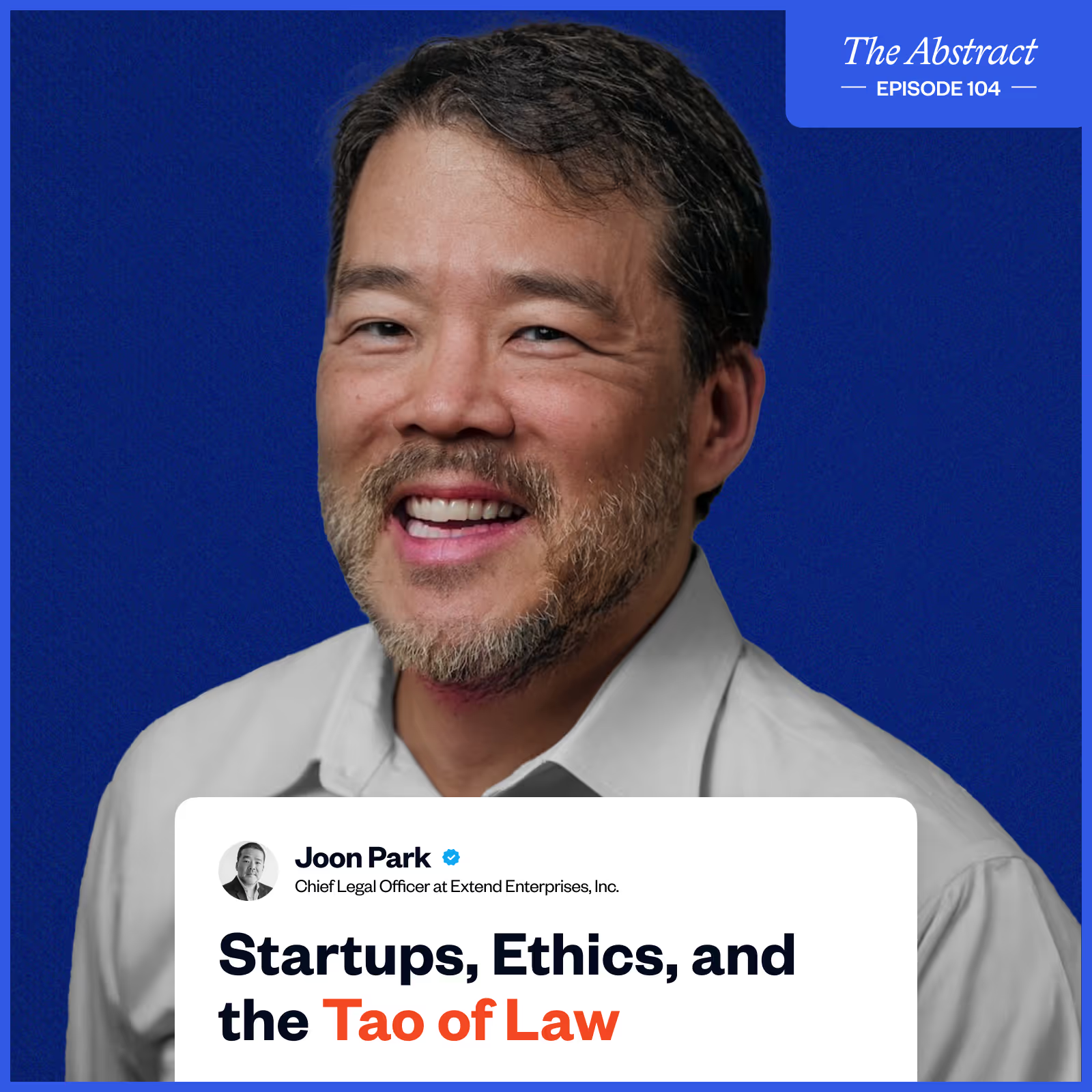

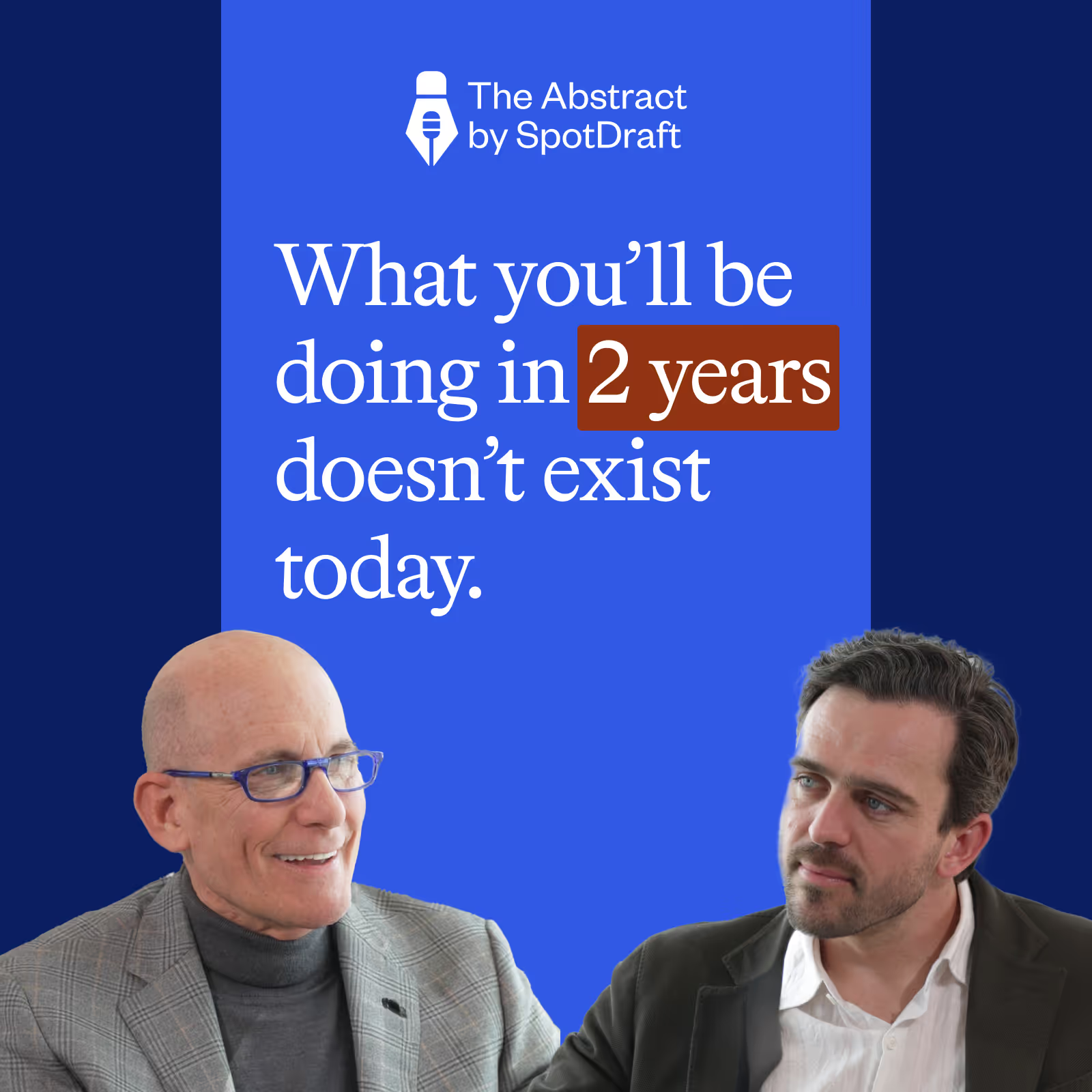
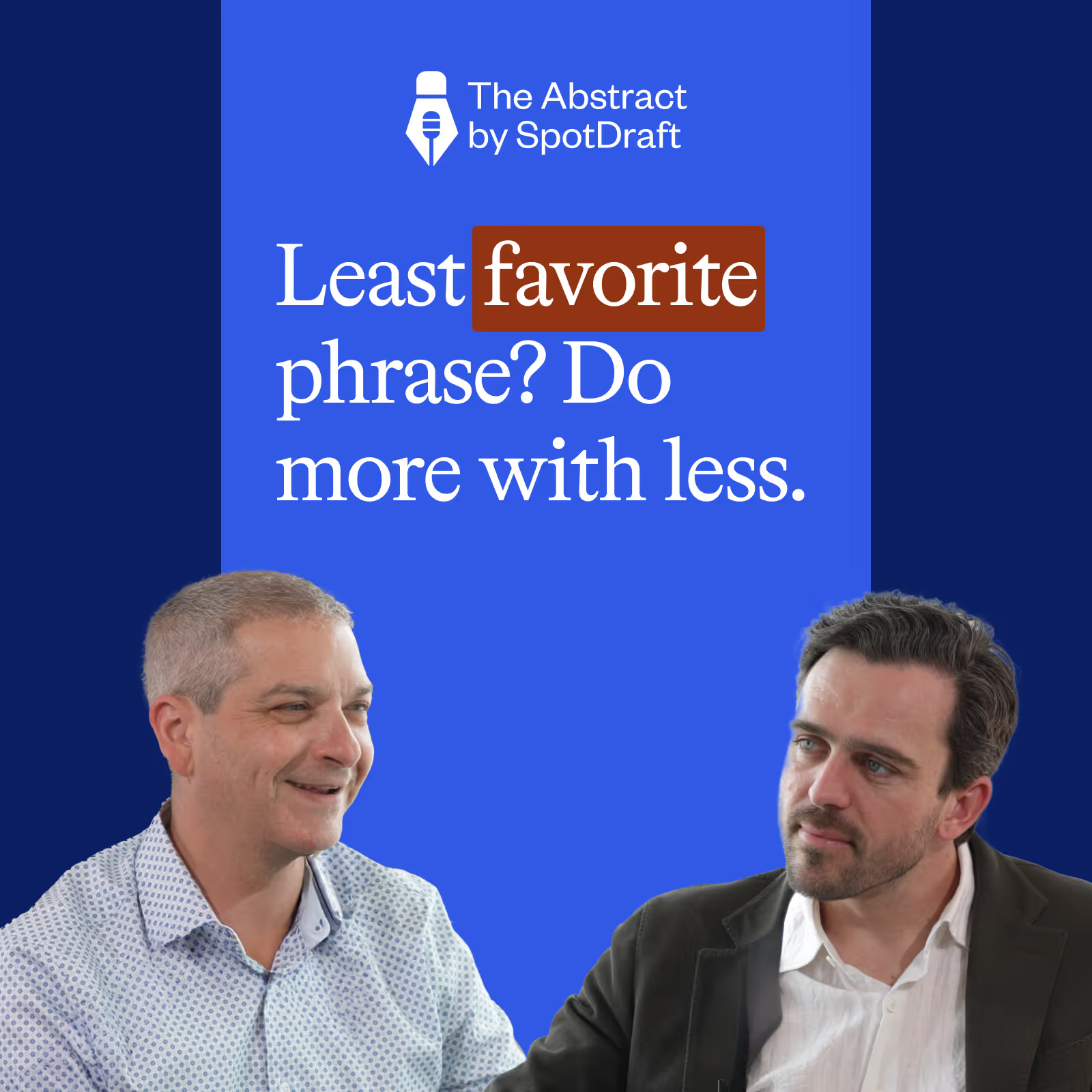
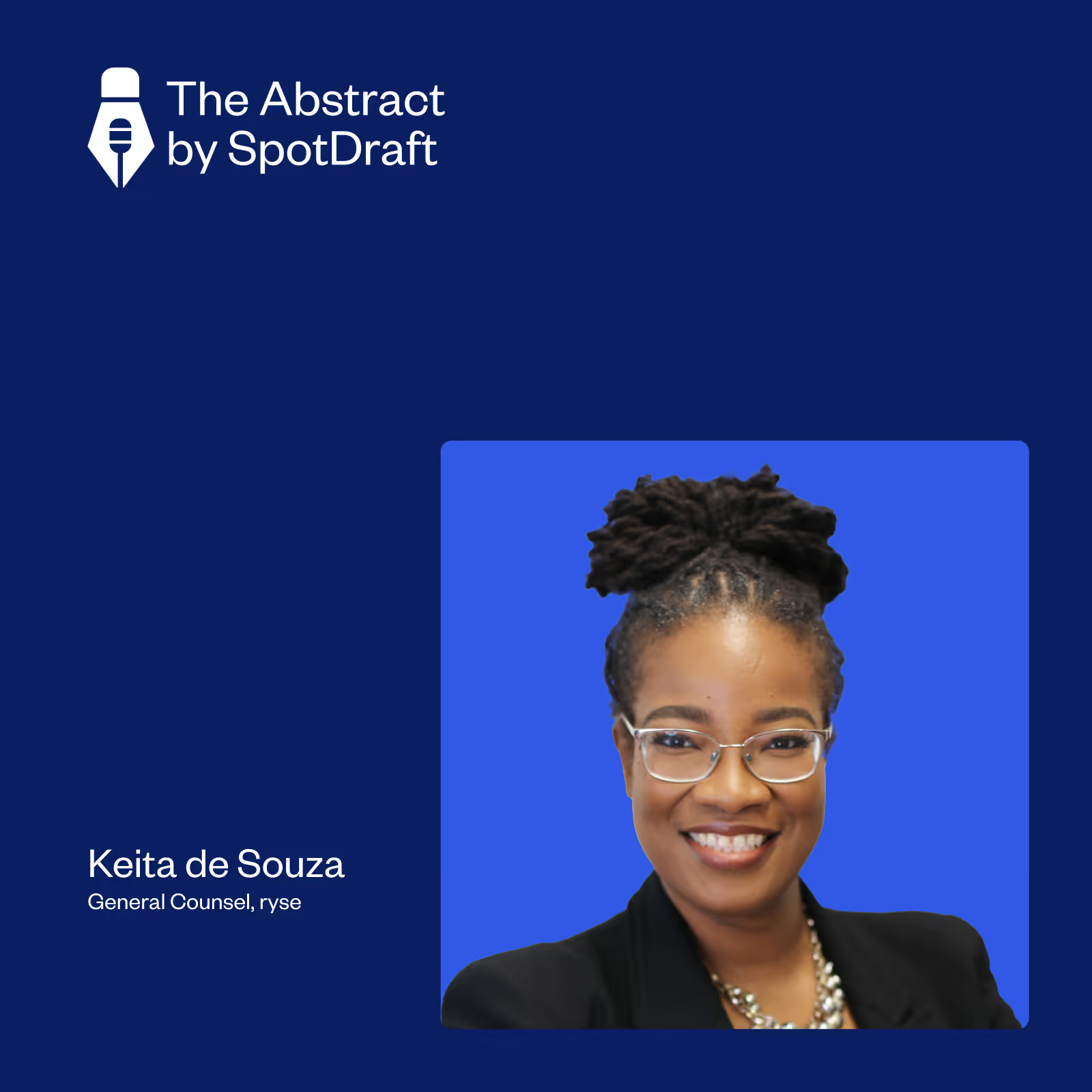
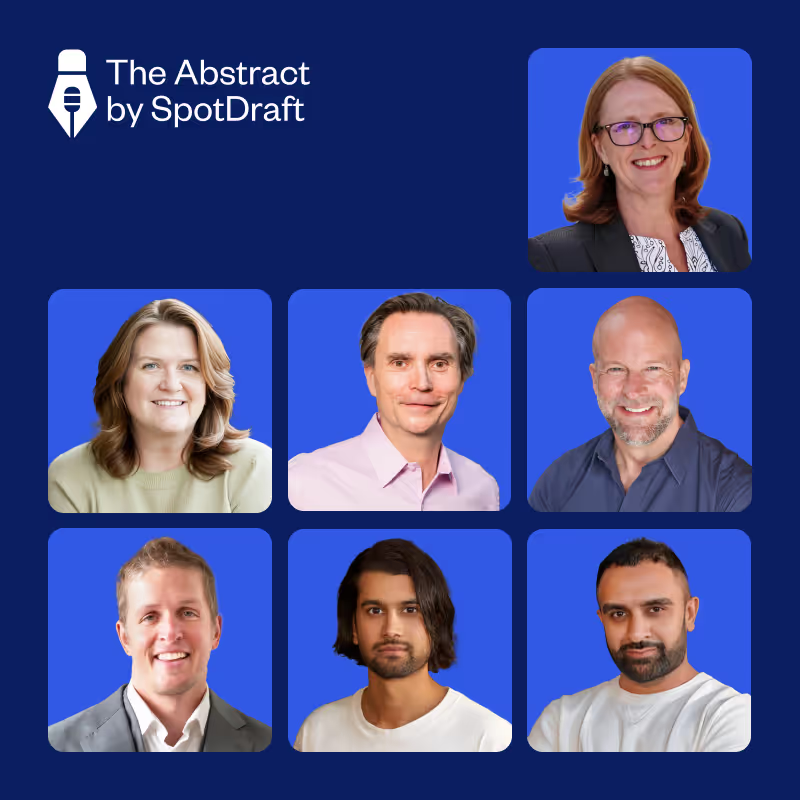



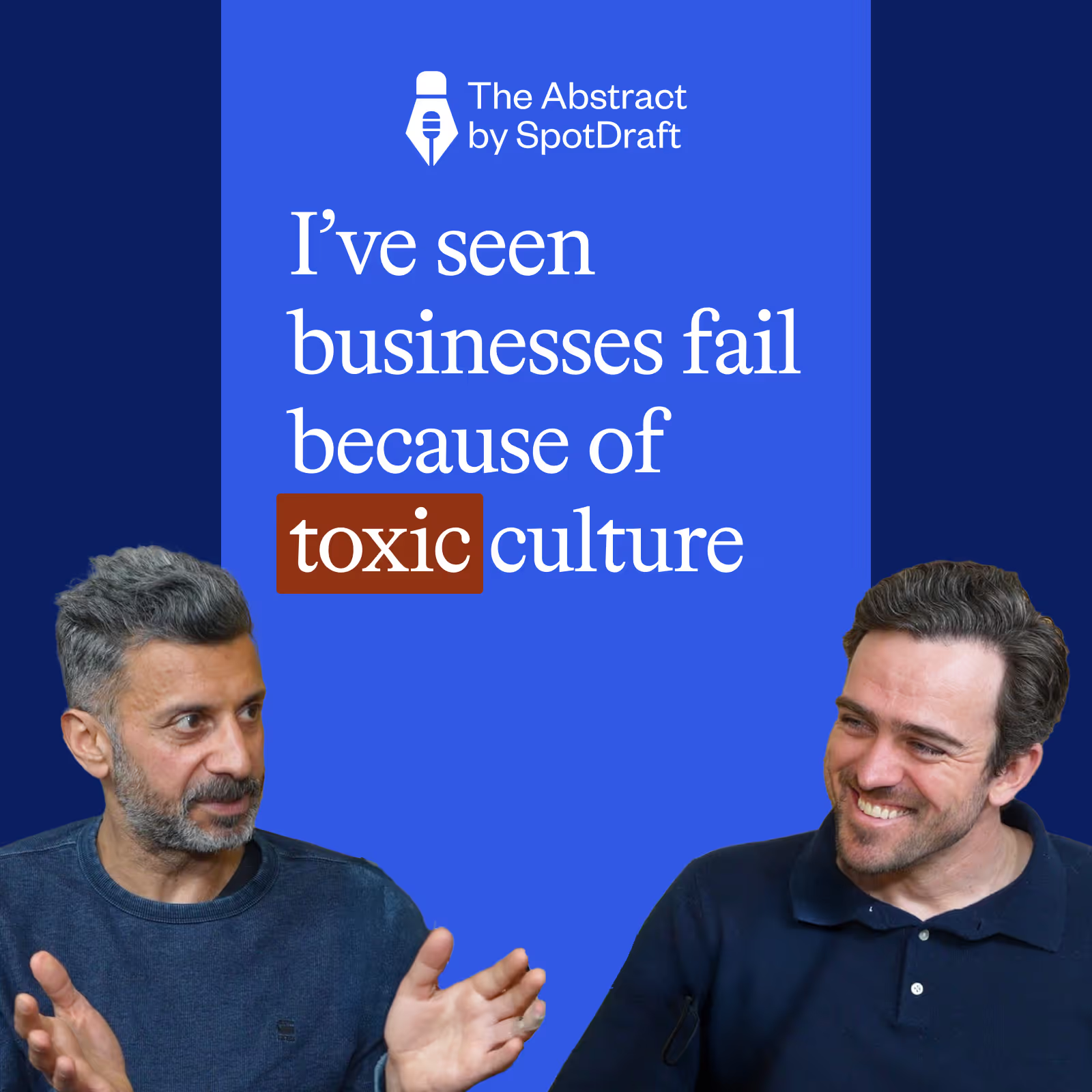

















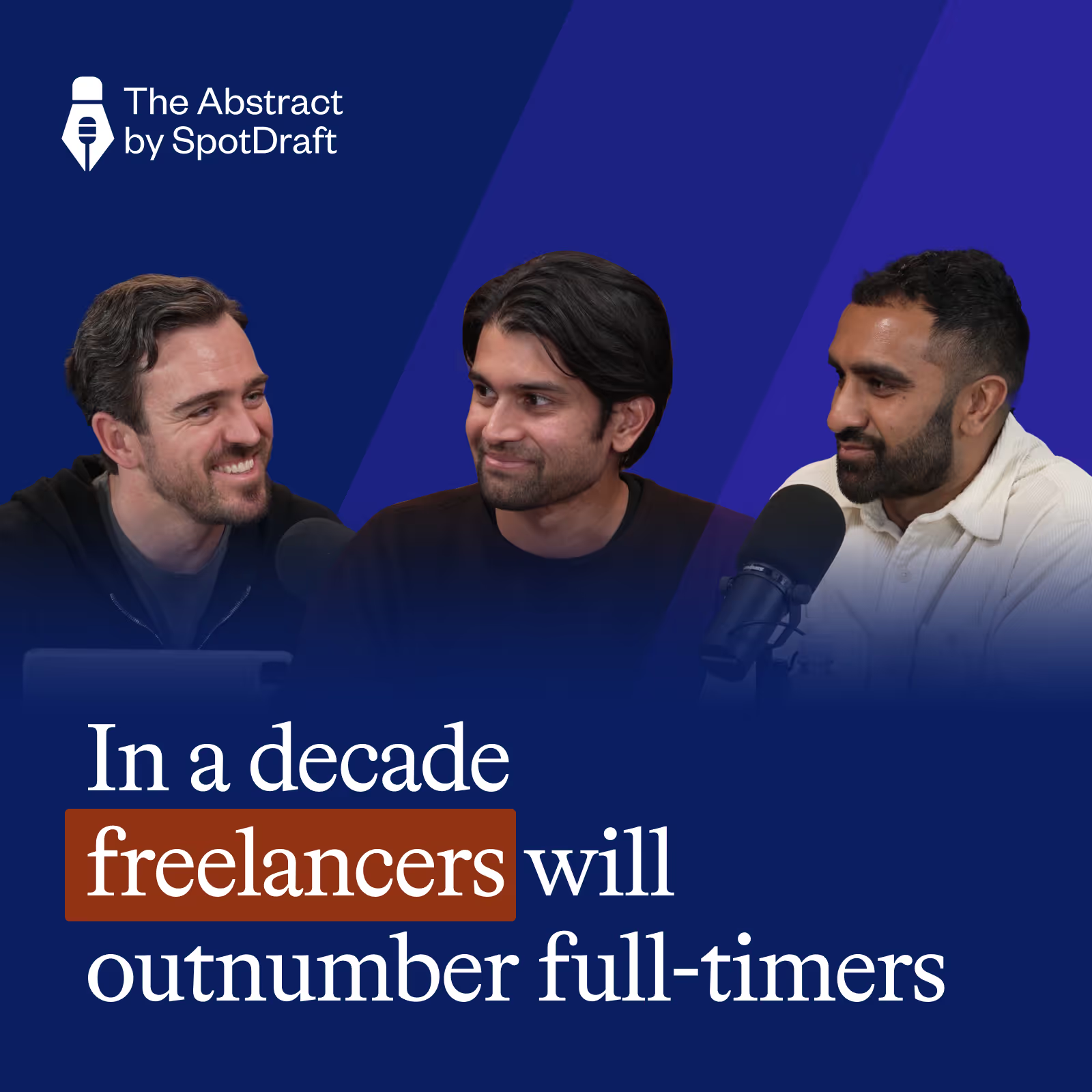











































.avif)







.avif)








